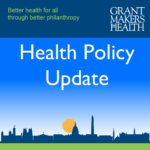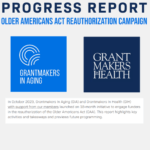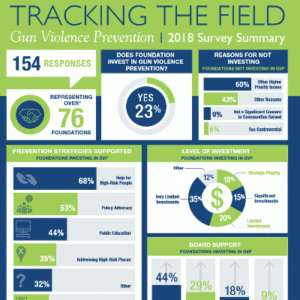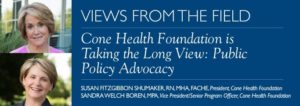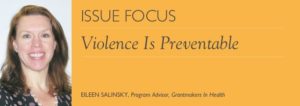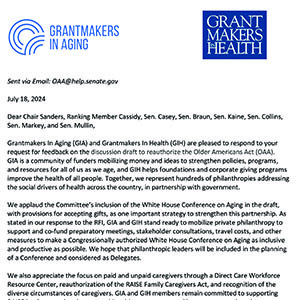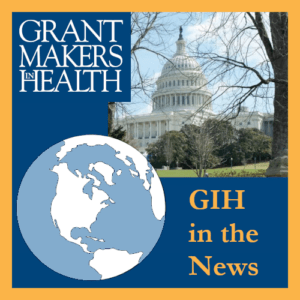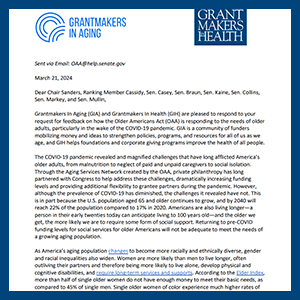Grantmakers In Health’s five-year strategic plan elevates leadership and influence as one of four strategic pillars for our work. GIH seeks to take a more active role in defining the key issues that will advance better health for all. We are also supporting health philanthropy with the thought leadership and programming to create lasting impact by influencing advocacy, policy, and funding in targeted areas.
This policy agenda identifies our public policy priorities for the coming year. Informed by health funders, these priorities will guide our programming, influence decisions related to issuing public statements on timely policy issues, and focus our emerging advocacy efforts. We hope these priorities will also inspire the field of health philanthropy and encourage greater collaboration and commitment to common policy goals among funders. We look forward to working with funders and others to advance this agenda.
GIH Health Policy Update Newsletter
An Exclusive Resource for GIH Funding Partners
In an effort to help our Funding Partners better understand the changing health policy landscape in the new administration and Congress, Grantmakers In Health (GIH) is expanding the GIH Health Policy Update newsletter to three issues per month. Working in collaboration with Leavitt Partners, a leading health care policy consultancy, we are adding new installments of the newsletter on the first and third Wednesdays of the month, while we will continue to partner with Trust for America’s Health on the installment released on the second Wednesday of the month.
2025 Federal Health Policy Timeline
This timeline previews expected and potential federal regulatory and legislative health policy events in 2025. Funding Partners interested in state legislative sessions should visit NCSL’s State Legislative Session Calendar.
A curated, exclusive resource for GIH Partners
GIH Advocacy for the Reauthorization of the Older Americans Act (OAA)
The OAA provides critical services that address the social drivers of health for older adults. If the OAA is not reauthorized, it is set to expire on September 30, 2024. Grantmakers In Health (GIH) and Grantmakers In Aging (GIA) announced a partnership last year to engage funders in advancing the reauthorization of this critical piece of legislation.
OAA News and Updates
In October 2023, Grantmakers In Aging (GIA) and Grantmakers In Health (GIH) launched an 18-month initiative to engage funders in the reauthorization of the Older Americans Act (OAA). This report highlights key activities and takeaways and previews future programming.
Download the Report →Upcoming Policy & Advocacy Events
We don't have anything scheduled at the moment but please check back soon for details on future Policy and Advocacy events.
Resources from Policy & Advocacy Events
Latest Resources
Trends in Health Philanthropy: Leveraging Policy Change
Over the years, GIH has developed considerable programming to help funders learn from one another about effective policy change strategies, to increase awareness of what is legally possible, and to decrease anxiety about emerging strategies.
Gun Violence Prevention Infographic (2018)
Gun violence is a public health crisis in the United States, with approximately 120,000 Americans injured or killed by guns each year. GIH surveyed Funding Partners in June 2018 to explore investments in gun violence prevention and found that health funders who support gun violence prevention efforts are investing in a wide range of prevention strategies, including support for high-risk populations and policy advocacy. The survey results have been compiled into a one-page summary infographic.
Cone Health Foundation is Taking the Long View: Public Policy Advocacy
To date, Cone Health Foundation has made grant investments of $86 million, spread over 1,500 grants in four priority areas (access to care, adolescent pregnancy prevention, HIV, and mental health and substance use disorders).
Riding Wild Horses: Philanthropic Strategy in An Era of Unpredictable Health Policy
In 2015, Montana passed bipartisan legislation to expand Medicaid for low-income adults. The new coverage went into effect in January 2016. Within a year, Montana’s uninsured rate dropped from 15 to 7.4 percent and more than 30,000 thousand newly-insured people had already obtained preventive services.
Violence Is Preventable
Mass shootings command public attention, but for too many Americans violence is a threat that must be confronted every day. Violent crime, although low relative to historical rates, has risen in recent years and disproportionally affects poor, racially segregated, urban neighborhoods (U.S. Department of Justice 2017; U.S. Department of Housing and Urban Development 2016).

